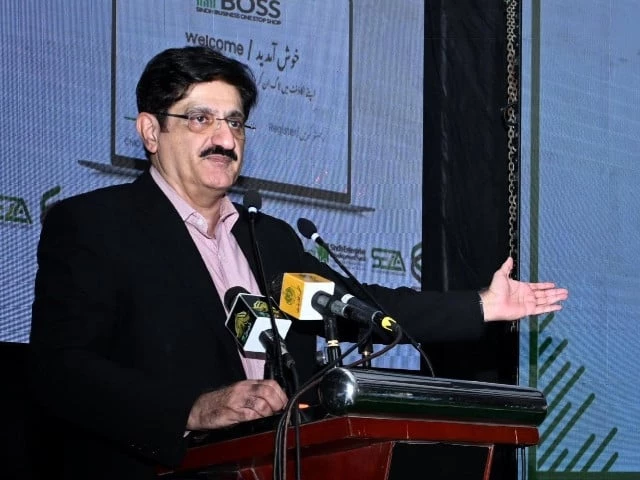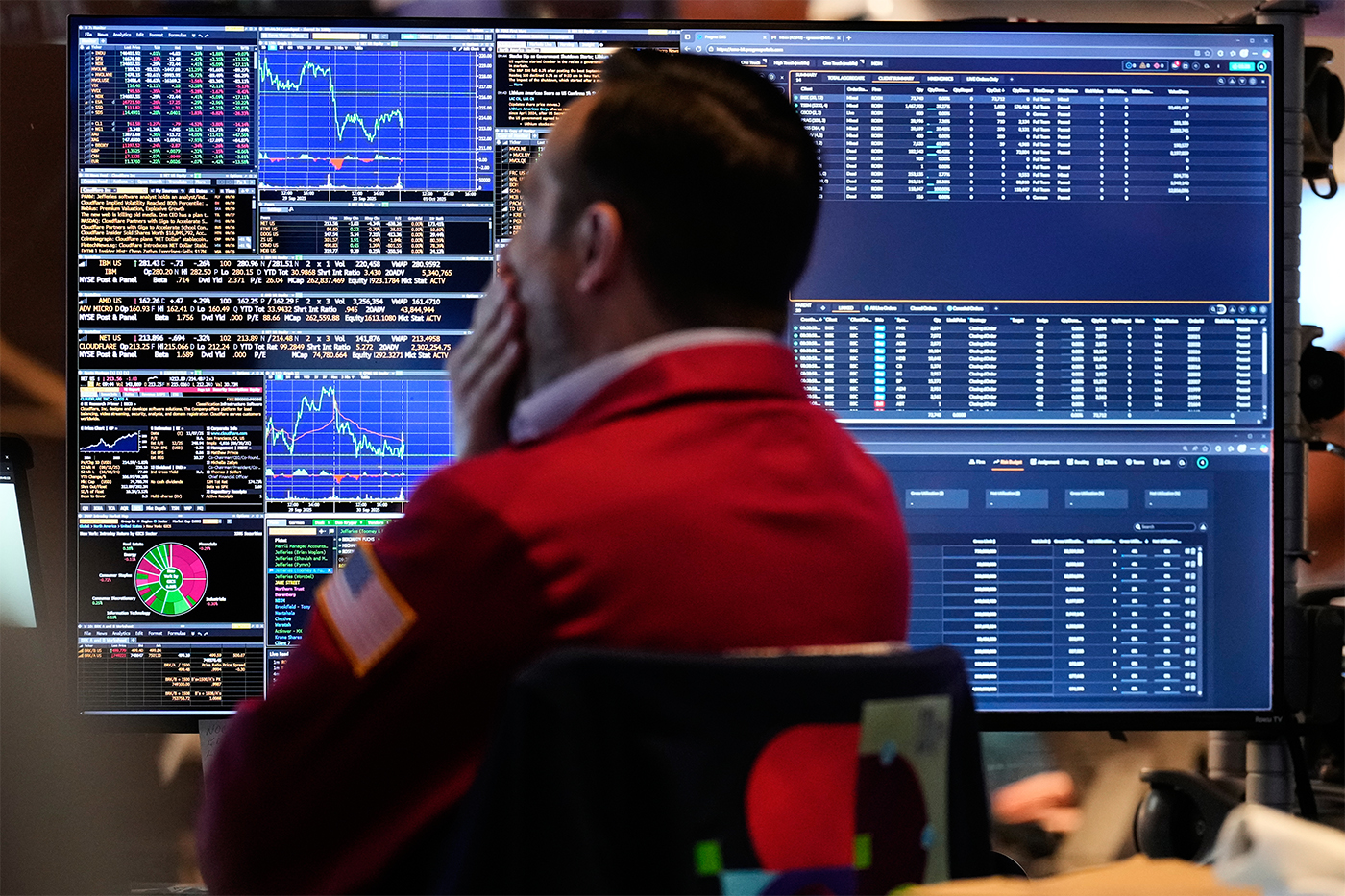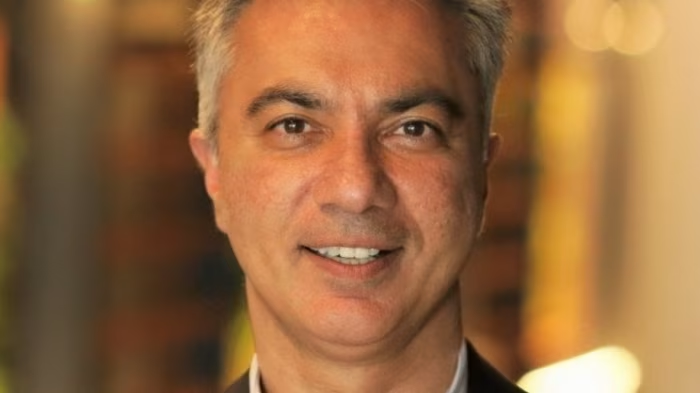- Sanofi’s high-dose influenza vaccine demonstrates superior protection for older adults against hospitalization vs standard-dose – Company Announcement – FT.com Financial Times
- Sanofi reports improved patient outcomes from high-dose influenza…
Blog
-
Sanofi's high-dose influenza vaccine demonstrates superior protection for older adults against hospitalization vs standard-dose – Company Announcement – FT.com – Financial Times
-

Oil supply at risk as Sindh seeks Rs180b cess from industry
Provincial govt releases one oil cargo, demands bank guarantees instead of undertaking from companies to clear cargoes
CM Sindh Murad Ali Shah. Photo: Sindh Government
…Continue Reading
-
Altmaier on how ‘picking pieces’ from rivals will fuel his Sinner revenge bid – ATP Tour
- Altmaier on how ‘picking pieces’ from rivals will fuel his Sinner revenge bid ATP Tour
- 2025 Vienna tennis prize money ATP Tour
- Erste Bank Open Betting Odds and Match Previews for October 21, 2025, Men’s Singles Sportsbook Wire
- ATP Vienna Day…
Continue Reading
-

Louvre heist losses put at almost €90m as museum’s head prepares to face MPs | Paris
The financial loss from France’s most dramatic heist in decades has been put at nearly €90m as the head of the Louvre prepared to face difficult questions over how thieves were able to steal priceless jewellery in broad daylight.
As police…
Continue Reading
-

Why Active ETFs Are More About Hype Than Performance
In 2021, the stock market valuation of GameStop skyrocketed thanks to a social media frenzy. It heralded the rise of the so-called “meme” stock, but also a rise in a particular kind of trading, one driven more by the attention economy than by inherent value in an investment, according to new Northeastern University research.
Between 20 and 25 years ago, as much as 80% of trading was done actively, says Da Huang, assistant professor of finance at Northeastern University. Active trading, he says, is defined by asset managers (usually in instruments like mutual funds) who are trying — actively — to beat the market.
The alternative is passive trading. “The passive fund tells you upfront, we’re not going to beat the market, we’re just going to be the market,” Huang says. Passive funds track the entire stock market, or large sections of the market, for more predictable gains.
In the U.S. today, around 55% to 60% of the market is passive and 40 to 45% active, according to Huang.
But that hasn’t stopped a new financial instrument from gaining in popularity. It’s known as active electronically traded funds, or AETFs.
Da Huang, assistant professor of finance. He says that most active ETFs are just “shiny objects.” Photo by Matthew Modoono/Northeastern University. The rise of active ETFs
“Active management is dying out,” Huang says. “This is why they’re trying to transform their funds into this tradable, almost stock-like instrument in the market, so that they grab this new clientele.”
That clientele are retail traders who come from a social media-driven environment.
Until recently, the SEC only provided active ETF approvals on a case-by-case basis, making it difficult to get approval. But on Sept. 29, the SEC granted its first blanket approval for an entire firm’s active ETF class, leading to what Huang described as an “opening the floodgate moment.”
Now, ETFs are fast becoming the instrument of choice for these retail traders, who use electronic trading platforms like Robinhood to purchase funds when they’re at extremes, hoping to make large profits in short periods of time.
But the active ETF market is one that’s full of contradictions, Huang notes.
One of the big differences between mutual funds and ETFs, Huang says, is that mutual funds only disclose their purchases and sell-offs once a quarter, whereas ETFs disclose that information daily.
“Back in the day, you would think asset management is all about secrecy,” he says. “I’m not going to tell you what I do. This is my secret sauce.”
Given that the stock market is a zero-sum game — in any trade there will be a winner and a loser — it was typical that asset managers, who were trying to beat the market, would keep their strategy a secret from the other players, with the goal of creating value for their investors.
“Now people are doing the opposite,” says Huang. When it comes to the managers of active ETFs, “they’re the first to go out and broadcast what they do.” In that case, “it’s pretty obvious. They’re not trying to outperform, they’re trying to grab attention,” Huang says.
The economics of attention
With traditional strategies, advertising a fund’s trades publicly would be “almost ridiculous,” Huang says. But active ETFs aren’t interested in traditional strategies.
“What we find is that when you make an investment fund almost operate like a stock — that is free to trade on the market at any time during the day — that creates an attention effect, in the sense that people don’t really look at the performance of the fund anymore.”
Instead of doing their research to find a stock that performs well, which is highly valued, retail traders instead “trade based on their feelings, their attention, or if this fund is doing something cool,” according to Huang’s research.
“Something cool,” the finance professor says, might be trading in internet-notable stocks, such as Tesla, GameStop or DraftKings, for the attention it brings. Or, it might simply mean an asset manager appearing on a talk show to discuss their current strategy in hopes of enticing new traders into their fund.
Market volatility and investor welfare
In the last 10 years, active ETFs have expanded from a market share of a few hundred million dollars to over a trillion dollars, Huang says. The investment firm BlackRock expects those funds to reach $4.2 trillion by 2030.
But the research reveals some potential drawbacks. Active ETFs, driven by retail traders’ unpredictable attention, could lead to greater market volatility and overall worse outcomes for traders, especially traders no longer focused on performance and value.
“This is going to have a huge impact on market efficiency and on investors’ welfare,” according to Huang. “Retail investors just need to focus more on performance and the fees they’re being charged for.”
In the end, he explains, most active ETFs “really don’t deliver superior outcomes. They are just shiny objects, and they grab your attention, and you are mind-controlled into buying these products.”
Continue Reading
-

Google finds Russian state hackers replacing burned malware with new tools
A Russian government-backed hacking group known as Coldriver has developed three new malware strains to replace a tool exposed earlier this year, according to new research by Google.
In a report released Tuesday, Google’s threat intelligence…
Continue Reading
-

BCG appoints new chief risk officer after Gaza aid controversy
Unlock the Editor’s Digest for free
Roula Khalaf, Editor of the FT, selects her favourite stories in this weekly newsletter.
Boston Consulting Group has appointed a new chief risk officer to oversee tougher internal controls and whistleblower procedures after the controversy over its work in Gaza.
Amyn Merchant had been given executive responsibility for risk management and compliance, having overseen those functions more broadly as head of BCG’s audit and risk committee, the consulting firm said on Tuesday.
The previous chief risk officer, Adam Farber, resigned from the role in July after revelations that BCG helped establish the Israeli-backed Gaza Humanitarian Foundation. The launch of the aid effort, which was designed to supplant the UN, was marred by the deaths of hundreds of Palestinians.
In June, BCG fired two partners who led “unauthorised” work with GHF. The Financial Times reported the following month that the project had been discussed at senior levels of the firm and extended to developing a postwar plan for Gaza that envisaged the voluntary relocation of a quarter of the population.
Merchant will implement what BCG has internally called “Project Reinforce”, reflecting the conclusions of an investigation into the Gaza work conducted by the law firm WilmerHale.
“The investigation concluded that this work was the result of individual misconduct, enabled by unwarranted process exceptions, gaps in oversight, and misplaced trust,” BCG said. “While it confirmed that BCG’s core processes and culture remain strong, it also identified areas that can be further reinforced.”
The FT reported last month that BCG would train staff on humanitarian principles and impose extra oversight on sensitive projects.
On Tuesday, it added that it was reinforcing business acceptance controls across all of its client work and “improving visibility and access to independent and confidential Speak-Up channels for all BCGers”.
Merchant has been at BCG for more than 30 years in roles on three continents and has chaired its audit and risk committee for the past five years.
“The ARC is a governance committee responsible for overseeing financial integrity, risk management, compliance and internal controls, not the day-to-day running of operations,” a BCG spokesperson said. “Its role is to challenge management on why controls failed, whether accountability has been enforced, and what corrective actions are being implemented.”
Merchant also chairs the firm’s senior leadership development programme and oversees relations with alumni. He previously led BCG’s New York office.
“His global perspective and commitment to responsible leadership will be instrumental as we continue to evolve BCG’s processes and safeguards in step with the scale and breadth of our global operations,” said Christoph Schweizer, chief executive.
Unlike at rival McKinsey, the chief risk officer is not a member of BCG’s main executive committee.
Continue Reading
-

Ari Aster’s ‘Eddington’ Gets Streaming Date At HBO Max
Ari Aster‘s explosive satire, which drew a nearly seven-minute standing ovation in its launch at Cannes earlier this year, will being streaming on HBO Max on Friday, Nov. 14. The A24 film will debut on HBO linear on Saturday, Nov….
Continue Reading
-

Primatology goes high tech — from bioacoustics to drones & AI
- From thermal cameras to deep learning AI, researchers are reinventing how they study primates in the wild.
- What began with Jane Goodall’s observational notes has evolved into artificial intelligence that…
Continue Reading
-

Stressful life factors early in life may triple the risk of developing psoriasis later
New longitudinal research reveals that severe stress caused by changes in family structure like divorce or separation experienced during the first year of life may triple the risk of developing psoriasis later in life. The results…
Continue Reading